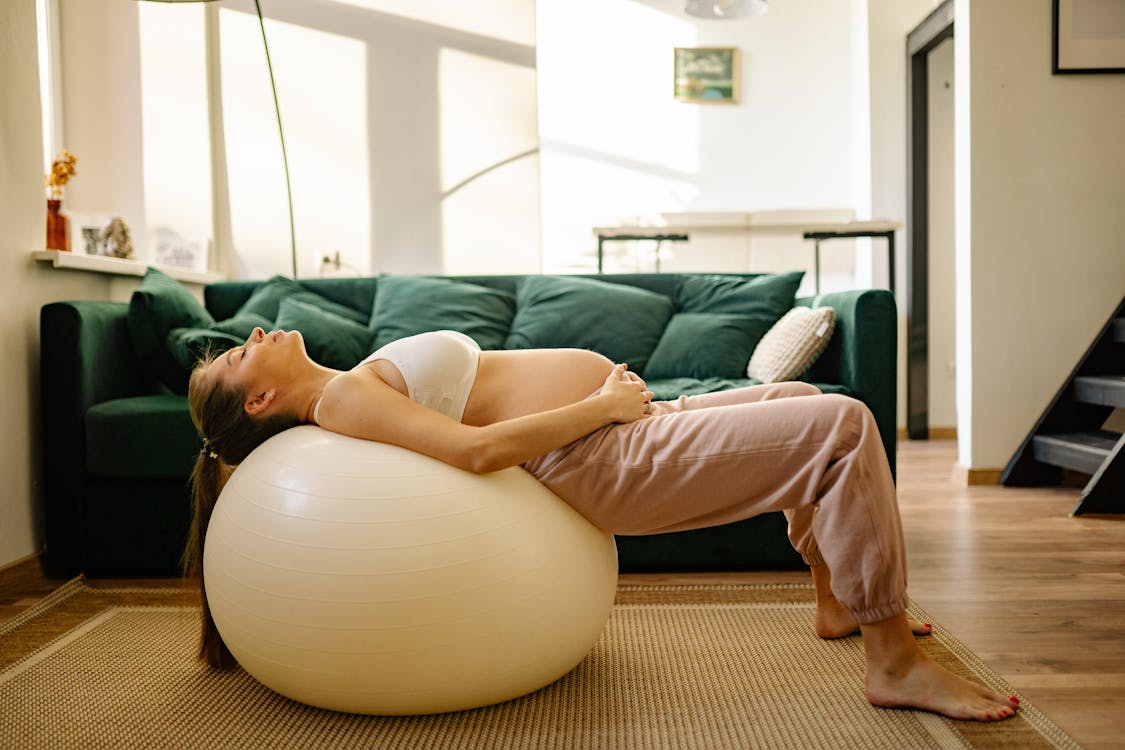Tips for Better Sleep During Pregnancy
5 minuteRead

Pregnancy brings with it a lot of excitement and surprises. While most new parents are aware that their sleep will be disturbed after their newborn comes into the picture, what expecting moms don’t know is that the sleep troubles can start during pregnancy. Sleep issues are common in pregnancy, especially in the third trimester. The growing belly, and the aches and pains are the major reasons why many women experience sleepless nights. Besides this, fluctuating hormones and stress levels can also compromise sleep during pregnancy. It can be even more frustrating if you lie awake every night wondering how to sleep. Staying well-rested during pregnancy is important, and thus adequate sleep is necessary.
Through this blog, we aim at discussing certain pregnancy tips for first-time moms who are having a hard time getting enough sleep.
Sleep Cycle by Trimester
First trimester
In your first trimester, you actually might find yourself sleeping more than usual. That’s because your placenta is growing and you crave a significant amount of sleep. Don’t resist the urge of going to bed early and taking frequent naps. Since the placenta is the organ that provides nourishment to the baby in the uterus, your heart pumps faster leading to more tiredness on your part. Since you’re likely to have trouble sleeping in the later stages of pregnancy, it’s better you sleep well in the first trimester.
Second trimester
In the second trimester, the amount of sleep tends to reduce. This is mainly because the baby and abdomen are growing. A lot of things will start affecting your sleep during this phase. There may also be an increased urge to wake up and use the restroom.
Third trimester
The quality of sleep deteriorates in the third trimester. Women tend to feel more tired due to factors such as back pain, leg cramps, baby kicks and weight gain.
How to Sleep better while Pregnant
Pregnant women should focus on good sleep hygiene. Therefore, we have some tips that will help you sleep well during this phase.
Try to Stick to a Routine
When you’re pregnant, the first thing you should be doing is establishing a sleep routine. Try to go to bed and get up at the same time every day. If you can get seven to nine hours of sleep every night, it would be great for your system. 10pm to 7am is an ideal sleep cycle pregnant women should follow. It may be tempting to watch pregnancy-related content at night, but remember sleep is more important.
Find a comfortable position
As the belly grows larger, a pregnant woman might have difficulty finding a comfortable sleeping position. Experts advise that pregnant women shouldn’t lie flat on their back as this can decrease oxygen to the placenta.
During the first trimester, you can sleep in any position you like or you’re comfortable in. The sleep position during early pregnancy can include back, side or stomach. Since the uterus hasn’t grown large enough, it will in no way interfere with sleep. As you reach your second and third trimester, it is important to sleep in a position that promotes healthy circulation. Most doctors recommend sleeping on the left side. The best way to get sound sleep during pregnancy is by buying a pregnancy pillow. It cradles the body in the right way and provides enough support.
Improve your sleep hygiene
Another tip for sleeping faster in pregnancy is improving your overall sleep hygiene. This entails a collection of habits and behaviours that will promote quality sleep. You can improve your sleep hygiene by going to bed on time, avoiding electronics for at least an hour before bed time, and by developing a relaxing bedtime routine such as reading or meditation.

Eat and drink mindfully
During gestation, the entire digestive system slows down. This causes a series of issues such as indigestion, constipation, and heartburn. Cultivating good eating and drinking habits is important during pregnancy. Carbonated drinks are a complete no-no. Also, try to avoid tomatoes, peppermint, and spicy and fatty foods. These foods trigger an acid reflux, therefore avoid them. Eat small meals throughout the day, instead of three large meals. Limit caffeine in your diet. When you’re pregnant, you should have no more than 200mg of caffeine per day. Also, avoid smoking and drinking alcohol. Coffee or tea before bedtime is not recommended as it is a stimulant that will keep you awake.

Indulge in relaxation techniques before bedtime
When it’s bedtime, you might find your mind wandering or your heart racing. To help you sleep better, we recommend you put on some soft music that is relaxing. A soothing sound playing in the background will definitely help you sleep. Also, try various relaxation techniques. You’ll find many guided meditation videos on YouTube. This relieves stress and promotes mindfulness. A soothing sleep environment is important.
Stretch before bed
Pregnant women usually experience leg cramping at night. This mainly occurs because the body’s ability to process calcium changes. Thus, every night before you go to bed, make it a point to stretch your calf muscles. You must also ensure you’re getting enough calcium and magnesium in your diet. This not only supports your baby’s healthy growth but also prevents leg cramps. In case you get sudden cramps while you’re asleep, flex your feet and press them against the foot of the bed.
Nap when you can
When you’re expecting, try to take day time naps. It’s the best way to catch up on lost sleep especially if your unborn baby is being active in your belly at night. A 20–30-minute nap is perfect. It will leave you feeling refreshed and less groggy.
Don’t underestimate the value of sleep during pregnancy. It should be your priority just like eating healthy and exercising. If you’re someone who is struggling to sleep, let me tell you, you’re not alone. Almost 98% of pregnant women report issues with sleep during pregnancy. If you’re going through a sleep disorder such as sleep apnoea, you should definitely seek professional help or consult your doctor.
Happy pregnancy!
Write, Record and Answer! Consume Unlimited Content! All you need to do is sign in and its absolutely free!
Continue with one click!!By signing up, you agree to our Terms and Conditions and Privacy Policy.










